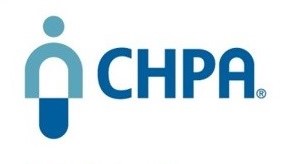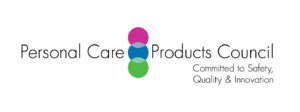Statement by the Personal Care Products Council and the Consumer Healthcare Products Association in Response to Part Two of FDA’s Sunscreen Ingredient Maximal Usage Trial


FOR IMMEDIATE RELEASE
Contacts:
Jewel Jones (202) 454-0302, jonesj@personalcarecouncil.org
Lauren Bloomberg, (202) 429-3534, lbloomberg@chpa.org
Washington, D.C. — “The U.S. Food and Drug Administration’s (FDA) sponsored study entitled ‘Effect of Sunscreen Application on Plasma Concentration of Sunscreen Active Ingredients’ published today in the Journal of the American Medical Association (JAMA) is a follow-up to an earlier study published in May 2019. Using a larger sample size, additional sunscreen active ingredients and formulations, the more recent study reached similar conclusions to those observed previously.
“All six sunscreen active ingredients were absorbed and found in plasma following application in either lotion or spray form. However, the presence of these ingredients in plasma does not suggest a safety issue and there were no serious drug-related adverse events reported in the trial, consistent with the excellent safety record associated with sunscreen active ingredients over decades of real-world use. We will continue to work cooperatively with FDA to determine what additional studies are needed to ensure the ongoing safety of sunscreen active ingredients in the marketplace.
“The Personal Care Products Council (PCPC), the Consumer Healthcare Products Association (CHPA) and their member companies are aligned with FDA, the Centers for Disease Control and Prevention (CDC), the U.S. Surgeon General, the American Academy of Dermatology (AAD), the Skin Cancer Foundation and health professionals worldwide about the important health benefits sunscreens provide as part of a safe sun regimen to help prevent sunburn and reduce skin cancer risk.
“FDA makes clear that the results of this study should not cause anyone to stop using sunscreen. Sunscreen is a crucial step in the fight against skin cancer and premature skin aging. It is our hope that using sunscreen becomes as much of a habit as using a seat belt.
“We look forward to our continued work with FDA to ensure that consumers have access to products containing a broad variety of sunscreen active ingredients.”
###
About the Personal Care Products Council
Based in Washington, D.C., the Personal Care Products Council (PCPC) is the leading national trade association representing the global cosmetic and personal care products industry. Founded in 1894, PCPC’s 600 member companies manufacture, distribute, and supply the vast majority of finished personal care products marketed in the U.S. As the makers of a diverse range of products millions of consumers rely on every day, from sunscreens, toothpaste and shampoo to moisturizer, lipstick and fragrance, personal care products companies are global leaders committed to product safety, quality and innovation. For more information on cosmetics and their ingredients, please visit www.cosmeticsinfo.org.
About the Consumer Healthcare Products Association
Founded in 1881, the Consumer Healthcare Products Association (CHPA) is the national trade association representing the leading manufacturers and marketers of over-the-counter (OTC) medicines, dietary supplements, and consumer medical devices. Every dollar spent by consumers on OTC medicines saves the U.S. healthcare system more than $7, contributing a total of $146 billion in savings each year. CHPA is committed to empowering self-care by preserving and expanding choice and availability of consumer healthcare products. www.chpa.org
